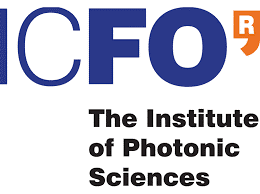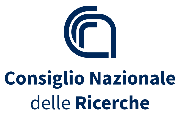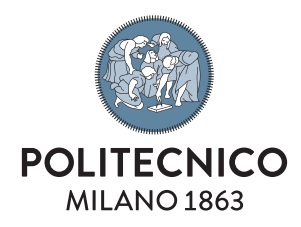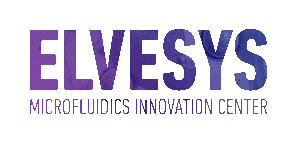Politecnico di Milano
- Department of Physics
- Italy
- Andrea Bassi
Politecnico di Milano is the leading Technical University in Italy, with >45000 students and >1400 faculty members at Bachelor, Master and PhD level. Education and research are characterized by the combination of theoretical bases and first-rate research infrastructures facilitating a wide variety of experimental studies. The Department of Physics of Politecnico di Milano (POLIMI) has an established experience in the development of laser-based technologies for biomedical applications. The POLIMI group is devoted to development of photonics systems and software for optical imaging, including light sheet microscopy and has a >5years experience in combining high resolution microscopy with microfluidics.

Universitätsmedizin Essen
- Institute for Transfusion Medicine
- Germany
- Bernd Giebel
The University Hospital Essen (UME) is the largest university hospital for first-rate medical services in the Ruhr region, which combines patient treatment, research and education.
The Institute for Transfusion Medicine contains five different research groups, one of them headed by Prof. Dr. Bernd Giebel, who is an expert in early human haematopoiesis and EV research. His group focuses on two topics: i) human hematopoietic stem cell biology and ii) the therapeutic potential of mesenchymal stem/stromal cell derived EVs.

The Institute of Photonic Sciences
- Biophotonics
- Spain
- Pablo Loza Alvarez
Located in the Mediterranean Technology Park in the metropolitan area of Barcelona, the Institute of Photonic Sciences (ICFO) currently hosts 26 research groups in 60 state-of-the-art research laboratories. Research lines encompass diverse areas in which photonics plays a decisive role, including photonics for medicine and biology and advanced imaging techniques. In addition to three consecutive accreditations of the Severo Ochoa national program for research excellence, ICFOnians have been awarded 15 elite ICREA Professorships and 40 ERC grants. ICFO participates actively in the European Technological Platform Photonics21 and is proactive in creating collaborations between industry and ICFO researchers.

Consiglio Nazionale delle Ricerche
- Institute for photonics and nano-technologies
- Italy
- Francesca Bragheri
The Institute for photonics and nanotechnologies (IFN) is part of the National Research Council (Consiglio Nazionale delle Ricerche – CNR), the largest public research institution in Italy. IFN-CNR, with a permanent staff of 78 people, is involved in more than 100 research projects funded by EU, Italian government, regional funding, private foundations and private industries. The femtosecond laser micromachining group has a solid expertise in the fabrication of optofluidic devices both in glasses and in plastic for biophotonics, sensing and cell manipulation and imaging applications.

University of Crete
- Department of Materials Science and Technology
- Greece
- Kelly Velonia
The University of Crete (UC) is a young public educational institution committed to excellence in research and teaching.
The Department of Materials Science and Technology of the University of Crete has emerged as an internationally renowned center of teaching and research in materials, a modern, priority field of knowledge.
Kelly Velonia heads the Synthetic Biomaterials Laboratory of the UC which focuses on research dealing with the synthesis and applications of polymers and biopolymers aimed at diverse applications (e.g., drug delivery systems, nanoreactors)
Universitat Politècnica de València
- Instituto de Investigación e Innovación en Bioingeniería
- Spain
- Valery Naranjo
The CVBLab group, belonging to the Polytechnical University of Valencia (UPV) and led by Professor Valery Naranjo-Ornedo, is an expert in the development and application of artificial intelligence methodologies in different industrial sectors. A proven 20-year experience in signal, image, video and text processing endows the research group with a high capacity to generate predictive models using any data type. CVBLab proposes the most cutting-edge machine-learning techniques to solve a great variety of problems such as classification, regression, content generation, object detection/segmentation, automatic scene description, agent-environment automatic interaction and natural language processing among others. The resulting predictive models are trained under both supervised and unsupervised paradigms, as well as reinforcement learning techniques.
Universität Tübingen
- Bioinformatik Department of Medicine
- Germany
- Manfred Claassen
Eberhard-Karls-Universität Tübingen is a full-faculty research-intensive university currently with about 5,300 R&D personnel, 27.400 students and with an R&D spend of >260 million Euro/year. Prof. Manfred Claassen leads the section for Clinical Bioinformatics at the University Hospital Tübingen and University of Tübingen. His research aims at identification and molecular characterization of such subpopulations in the complex tissue context across health and disease states. The Claassen group follows an integrated experimental and computational biology approach that centers around information rich, high dimensional single cell measurements and their comprehensive mathematical analysis in the context of immune and cancer biology.
Elvesys Microfluidics Innovation Center
- R&D
- France
- Christa Ivanova
Abbelight
- R&D
- France
- Valentina Caorsi
Abbelight is the result of 10 years of academic research on new detection methods for fluorescence microscopy combined with single molecule localisation microscopy to achieve ultimate resolution. Founded as a spinoff from Sandrine Leveque-Fort laboratory (ISMO – Paris-Saclay University) and empowered by its academic origins, Abbelight aims to make 3D fluorescence nanoscopy accessible to all research laboratories.
Eidgenössische Technische Hochschule Zürich
- Department of Chemistry and Applied Biosciences
- Switzerland
- Andrew deMello
ETH Zürich is an engineering, science, technology, mathematics and management university, consistently ranked among the top engineering universities in the world.
The deMello group at ETH has a history of excellence in developing microfluidic tools for high-throughput chemistry biology. A key focus of recent research efforts has been the development of entirely new kind of imaging microfluidic flow cytometers for imaging cells at high linear velocities.
Contact us
Project coordinator: Andrea Bassi
Project manager: Giorgia Lancerotti
Webmaster: Maurizio Contran





